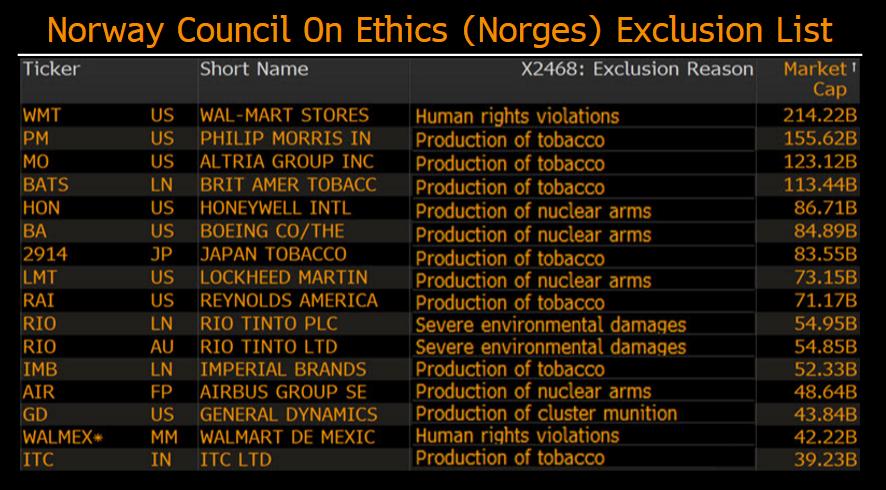But the real change is that sophisticated investors no longer consider these factors 'special,' they're just a logical outcome of what the data reveals, another piece of the puzzle. JL
Gregory Elders and Morgan Tarrant report in Bloomberg:
Sustainable, responsible or ethical investing has outgrown a niche to encompass 30% of assets under management globally, or over $21 trillion. 75% of millennials and 63% of women consider social, political or environmental impact when making investment decisions. The investment community focus(es) more on long-term value creators and cited their “real and quantifiable financial impacts.”
Sustainable investing is moving from the confines of speciality funds to broader traditional investment analysis. A greater recognition of the financial cost of environmental, social and governance issues, better company data disclosure and investor demand are among factors driving the change. While European investors are more likely to apply a sustainability lens, issues such as energy efficiency, water scarcity, safety and diversity are gaining ground with a wider investor base, even without a label.Risk recognition drives sustainable investing out of the shadows
Variously labeled as sustainable, responsible or ethical investing, the field has outgrown a niche to encompass 30% of assets under management globally, or over $21 trillion, according to the Global Sustainable Investment Alliance (GSIA). More than 1,300 asset owners and managers have signed the Principles for Responsible Investment. Environmental, social and governance (ESG), one of the largest subsets, designates the analytical asessment of risk and opportunity of traditional sustainability issues.Coal, oil latest ‘sin’ stocks shows ethical investing evolution
What is deemed ethically dubious may evolve, but screening out companies engaged in unethical sectors or business practices remains at the heart of sustainable investing. Climate change concerns have driven some investors to add coal and oil producers and high-carbon utilities to the list of “sin” stocks such as tobacco, weapons manufacturers, alcohol and gambling. In addition to entire sectors, some exclude for violations in areas including human rights, severe environmental damage and corruption.Long-term ESG company risks need to be immediate investor focus
BlackRock CEO Larry Fink wrote a letter to S&P 500 CEOs at the beginning of 2016, where he asked the investment community to focus more on long-term value creators, including environmental, social and governance (ESG) factors and cited their “real and quantifiable financial impacts.” The missive highlights how issues such as carbon emissions and diversity are gaining broader traction when considering investments. Varying company-data disclosure and translating the financial costs presents a challenge for investors.Europe leads responsible investment assets on pension fund focus
European institutional investors are the most likely to scrutinize sustainability issues, with 59% of managed assets considering such issues vs. just 19% in the U.S., according to GSIA. Pension funds, given their focus on long-term returns, have been a major driver of ESG investing. The preponderance of large, often state-backed, pension funds in Europe may help drive ESG uptake at asset managers. Thus, European companies are much more likely to voluntarily report environmental and social data.Australia nips at Europe’s heel with half of assets applying ESG
With half of Australian assets under management applying environmental, social and governance (ESG) criteria to investment decisions, according to the Responsible Investment Association Australasia, the country has the second-largest proportion of ESG integration, narrowly trailing the Europe-wide level. Key reasons include Superannuation funds’ longer-term focus and asset manager recognition of the financial impact of ESG. The large proportion may pressure investors and companies to increase ESG consideration.Millennials to inherit parents’ wealth, if not their values
The growing clout of millennials and female investors may drive greater emphasis on companies’ sustainability performance given both demographics’ stated concern about such issues. Three quarters of millennials and 63% of women consider social, political or environmental impact when making investment decisions, according to a survey of high net worth investors by U.S. Trust. Only 41% of men and 46% of baby boomers expressed similar views. Millennials may outgrow those sentiments as their parents have done.





















0 comments:
Post a Comment